Related Research Articles

Pollution is the introduction of contaminants into the natural environment that cause adverse change. Pollution can take the form of any substance or energy. Pollutants, the components of pollution, can be either foreign substances/energies or naturally occurring contaminants.

Emissions trading is a market-based approach to controlling pollution by providing economic incentives for reducing the emissions of pollutants. The concept is also known as cap and trade (CAT) or emissions trading scheme (ETS). One prominent example is carbon emission trading for CO2 and other greenhouse gases which is a tool for climate change mitigation. Other schemes include sulfur dioxide and other pollutants.
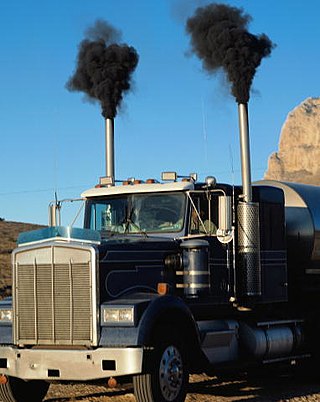
In economics, an externality or external cost is an indirect cost or benefit to an uninvolved third party that arises as an effect of another party's activity. Externalities can be considered as unpriced goods involved in either consumer or producer market transactions. Air pollution from motor vehicles is one example. The cost of air pollution to society is not paid by either the producers or users of motorized transport to the rest of society. Water pollution from mills and factories is another example. All consumers are made worse off by pollution but are not compensated by the market for this damage. A positive externality is when an individual's consumption in a market increases the well-being of others, but the individual does not charge the third party for the benefit. The third party is essentially getting a free product. An example of this might be the apartment above a bakery receiving the benefit of enjoyment from smelling fresh pastries every morning. The people who live in the apartment do not compensate the bakery for this benefit.
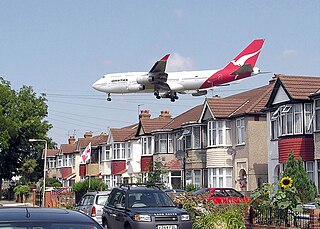
Noise pollution, or sound pollution, is the propagation of noise or sound with ranging impacts on the activity of human or animal life, most of which are harmful to a degree. The source of outdoor noise worldwide is mainly caused by machines, transport and propagation systems. Poor urban planning may give rise to noise disintegration or pollution, side-by-side industrial and residential buildings can result in noise pollution in the residential areas. Some of the main sources of noise in residential areas include loud music, transportation, lawn care maintenance, construction, electrical generators, wind turbines, explosions and people.
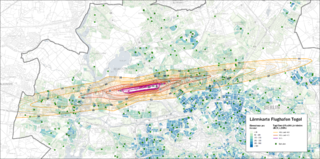
Aircraft noise pollution refers to noise produced by aircraft in flight that has been associated with several negative stress-mediated health effects, from sleep disorders to cardiovascular ones. Governments have enacted extensive controls that apply to aircraft designers, manufacturers, and operators, resulting in improved procedures and cuts in pollution.

Broxtowe is a local government district with borough status in Nottinghamshire, England. It lies immediately west of the city of Nottingham, and most of the built-up areas of the borough form part of the Nottingham Urban Area. The council is based in Beeston and the borough also includes the towns of Eastwood, Kimberley and Stapleford and surrounding villages and rural areas.

Dame Esther Louise Rantzen is an English journalist and television presenter, who presented the BBC television series That's Life! for 21 years, from 1973 until 1994. She works with various charitable causes and founded the charities Childline, a helpline for children, which she set up in 1986, and The Silver Line, designed to combat loneliness in older people's lives, which she set up in November 2012.
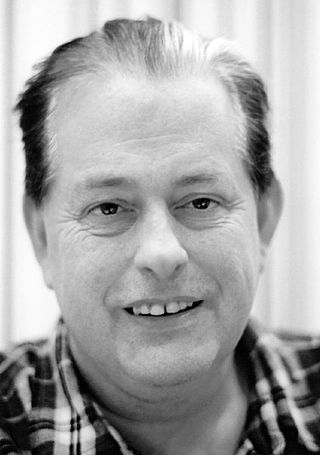
Martyn Ware is an English musician, composer, arranger, record producer, and music programmer. As a founding member of both the Human League and Heaven 17, Ware co-wrote hit songs such as "Being Boiled" and "Temptation".
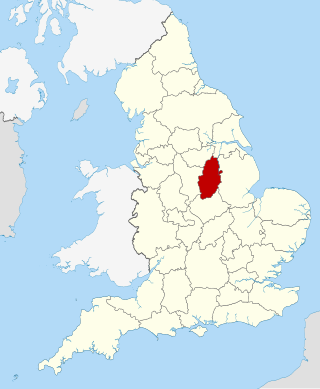
Nottinghamshire Police is the territorial police force responsible for policing the shire county of Nottinghamshire and the unitary authority of Nottingham in the East Midlands area of England. The area has a population of just over 1 million.

Noise control or noise mitigation is a set of strategies to reduce noise pollution or to reduce the impact of that noise, whether outdoors or indoors.

Aspley is a council estate and a ward of the city of Nottingham, Nottinghamshire, England. It is located within the boundaries of Nottingham City Council. The ward is located 3 miles (4.8 km) west of Nottingham City Centre and is located only 1.6 miles west of Junction 26 of the M1. It lies south of Bulwell, west of Basford and is north of Bilborough. The principal road in the ward is the A610. At the 2001 Census the ward had a population of 15,689, increasing to 17,622 at the 2011 census.

A noise barrier is an exterior structure designed to protect inhabitants of sensitive land use areas from noise pollution. Noise barriers are the most effective method of mitigating roadway, railway, and industrial noise sources – other than cessation of the source activity or use of source controls.
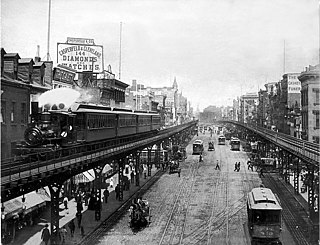
Mary Elizabeth Walton was a nineteenth-century American inventor who was awarded two patents for pollution-reducing devices. In 1881, Walton created a method for reducing the environmental hazards of the smoke emitted from locomotive, industrial and residential chimneys. Her system deflected the emissions being produced by factory smokestacks into water tanks, where the pollutants were retained and later flushed "into the sewer, or into other suitable channels for conducting them to a distant or any desired locality". This water tank system redirected smoke, odors, and pollutants away from the city and out of the air before society had even come to an understanding of the problem. The extent of the problem was a dark cloud that hung in the air and an unpleasant odor, yet Walton inadvertently also helped to reduce air pollution and cancer-causing coal smoke.
The Next Generation Air Transportation System (NextGen) is an ongoing United States Federal Aviation Administration (FAA) project to modernize the National Airspace System (NAS). The FAA began work on NextGen improvements in 2007 and plans to finish the final implementation segment by 2030. The goals of the modernization include using new technologies and procedures to increase the safety, efficiency, capacity, access, flexibility, predictability, and resilience of the NAS while reducing the environmental impact of aviation.

Environmental Protection UK is a UK environmental non-governmental organisation (NGO) working to improve the quality of the local environment - specialising in the subjects of air quality, noise management and land quality. It was formerly known as the National Society for Clean Air and Environmental Protection (NSCA), changing its name 2007, to reflect ongoing work in fields beyond air quality.
Noise Free America is a national, non-profit organization aimed at reducing noise pollution in the community. The organization's main target is noise from boom cars, leaf blowers, motorcycles, and car alarms. Noise Free America has a 501(c)(3) non-profit status and has chapters in 27 states across the U.S. Its headquarters are located in Chapel Hill, North Carolina.

Active mobility, soft mobility, active travel, active transport or active transportation is the transport of people or goods, through non-motorized means, based around human physical activity. The best-known forms of active mobility are walking and cycling, though other modes include running, rowing, skateboarding, kick scooters and roller skates. Due to its prevalence, cycling is sometimes considered separately from the other forms of active mobility.
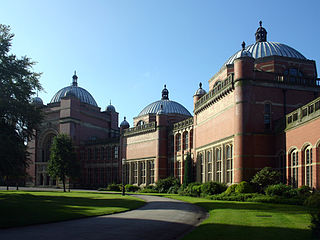
Bridget Mary Shield is a leading researcher on acoustics.
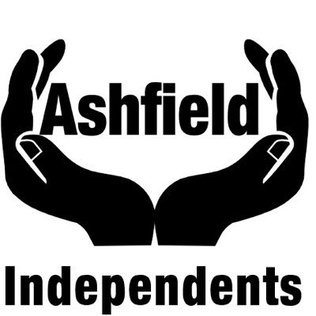
The Ashfield Independents are a political party in the Ashfield District in Nottinghamshire, England.

Anchor Hanover Group, trading as Anchor, is the largest provider of specialist housing and care for older people in England. It was formed in November 2018 when Anchor Trust and Hanover Housing Association merged. Its main office is in Bradford.
References
- ↑ "Page for the officers of the NAS". companieshouse.gov.uk. Retrieved 26 May 2018.
- 1 2 "Noise Abatement Society – To solve noise pollution for the benefit of all". Noise Abatement Society – To solve noise pollution for the benefit of all. Retrieved 4 June 2021.
- ↑ "Report of recent award by NAS". broxtowe.gov.uk. Archived 2016-08-19 at the Wayback Machine
- 1 2 "The Noise Abatement Society: John Connell Awards 2015 Broxtowe Borough Council Wins The Silent Approach Award For Using Low – noise Terberg Matec UK Bin Lifts". staplefordcommunitygroup.org.uk. Retrieved 26 May 2018.
- ↑ "Noise Abatement & Noise Nuisance". hayesmckenzie.co.uk. 8 January 2019. Retrieved 13 October 2020.
- ↑ "Helpline and support". noiseabatementsociety.com. Retrieved 26 May 2018.